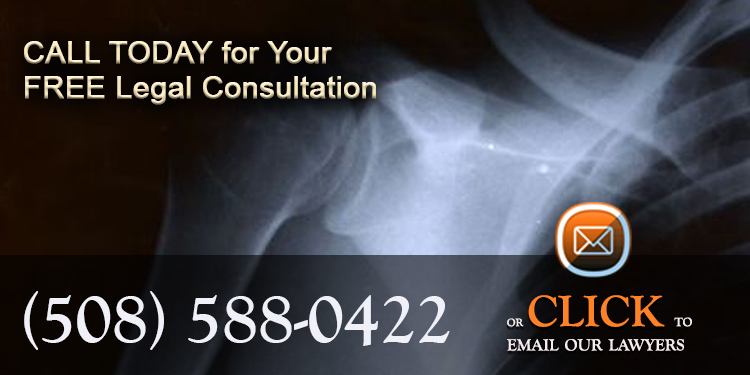Larynx Fracture
Larynx Fracture
What Is A Larynx Fracture
Laryngeal fractures usually occur as the result of accidents involving direct trauma to the neck, most commonly as a result of car accidents. The injury can lead to an instant, serious airway obstruction that is life-threatening. Therefore all larynx fractures must be treated as serious emergencies. They can also be associated with open neck, esophageal, and intracranial injuries, as well as cervical spine fractures.
Laryngeal fractures can be difficult to diagnose, treat, and manage, as this type of fracture is rare and most doctors have limited experience in dealing with it.
Causes
While women are more predisposed to certain laryngeal injuries (such as supraglottic injuries) due to having slimmer, longer necks, men tend to suffer from a higher percentage of traumatic laryngeal injuries. Auto accidents remain the most common cause of larynx fractures because drivers tend to strike the steering wheel and passengers the dashboard when unrestrained during a crash. This impact with the inside of the car causes the larynx to become compressed against the cervical vertebrae, leading to injury. A small percentage of cases are also caused by assault, strangulation, sports injuries, and other incidents involving traumatic impacts.
Symptoms and Diagnosis
Common symptoms of laryngeal fractures include neck pain, hoarseness, aphonia, odynophonia, dysphonia, dyspnea, dysphasia, and odynophagia. In order to diagnose laryngeal trauma, the cervical spine must first be examined for signs of injury, which can include subcutaneous emphysema, hemoptysis, hematoma, stridor, ecchymosis, vocal cord immobility, laryngeal tenderness, bony crepitus, and loss of anatomical landmarks.
Types and Associated Injuries
Once traumatic force occurs to the larynx, multiple associated complications can arise, such as dislocations, mucosal tears, additional fractures, hematoma, edema, cartilage necrosis, cord paralysis, and airway loss.
Laryngeal injuries themselves differ based on where they are located. For example:
- Subglottis: Bilateral vocal cord paralysis from recurrent laryngeal nerve damage and crushing forces to the cricoid cartilage
- Glottis: Cruciate fractures of the thyroid cartilage from traumatic force
- Supraglottis: Repositioning of epiglottis due to traumatic force leads to false lumen anterior, which can then tunnel into the larynx and cause cervical emphysema
- Cricothyroid joint: Vocal cord paralysis can result from injury to the recurrent laryngeal nerve
- Cricoarytenoid joint: Compression of the larynx against the cervical vertebrae caused by traumatic force
- Hyoid bone: An injury to the central part of the hyoid bone due to the strength of the cornua
Treatment
The goal of treating laryngeal fractures is to provide the patient with the same preinjury function. Whether or not surgery is required is typically determined by conducting a direct nasopharyngoscopy and CT scans. Injuries with mucosal tears that are less than two cm long are typically treated effectively without surgery, although, in instances of major injuries, tracheotomy is required.
Personal Injury Attorneys Who Care
Laryngeal fractures and associated trauma after an auto accident can cause severe pain and limit your ability to return to your normal life. No matter where you are, our attorneys are here to help. Contact our office for a free case review and consultation today, and we will get you back on your feet.
Our Experienced Massachusetts Injury Attorneys are Here to Help You. Free consultation. No obligation. No fee unless we recover for you.
If you have suffered from a laryngeal fractures, or any other injury due to someone else’s carelessness or actions, we are just a phone call away. Contact our law offices to for a free consultation and find out how we can help. For your free, no-obligation case review and consultation call our law firm today at (508) 588-0422 and you will have taken your first step towards getting fair compensation for your injuries or for the loss of a loved one. You can also click here to use our Free Case Evaluation Form.
We offer a free, no-obligation legal consultation to help you understand your rights and the value of your case.
Our personal injury trial lawyers handle all types of accident claims including those involving facial accidents, throughout all of Southeast Massachusetts including, but not limited to, those in the following counties, cities and towns: Plymouth County including Brockton, Plymouth, Bridgewater, Marshfield, Hingham, Duxbury, Wareham, Abington, Rockland, Whitman, Hanson, Holbrook, Middleborough; Norfolk County including Quincy, Stoughton, Dedham, Weymouth, Braintree, Avon, Holbrook, Randolph, Canton, Sharon, Brookline, Franklin; Bristol County including New Bedford, Fall River, Taunton, Attleboro, Mansfield, Easton, Raynham, Lakeville, Norton; Cape Cod, Falmouth, Barnstable and the Greater Boston area including Cambridge, Somerville, Medford, Everett, Lynn, Revere, Dorchester, Roxbury.

